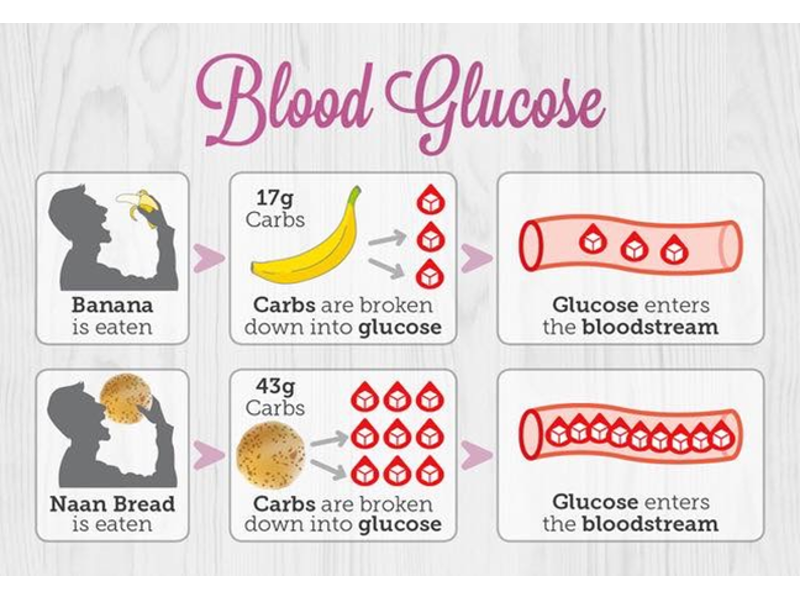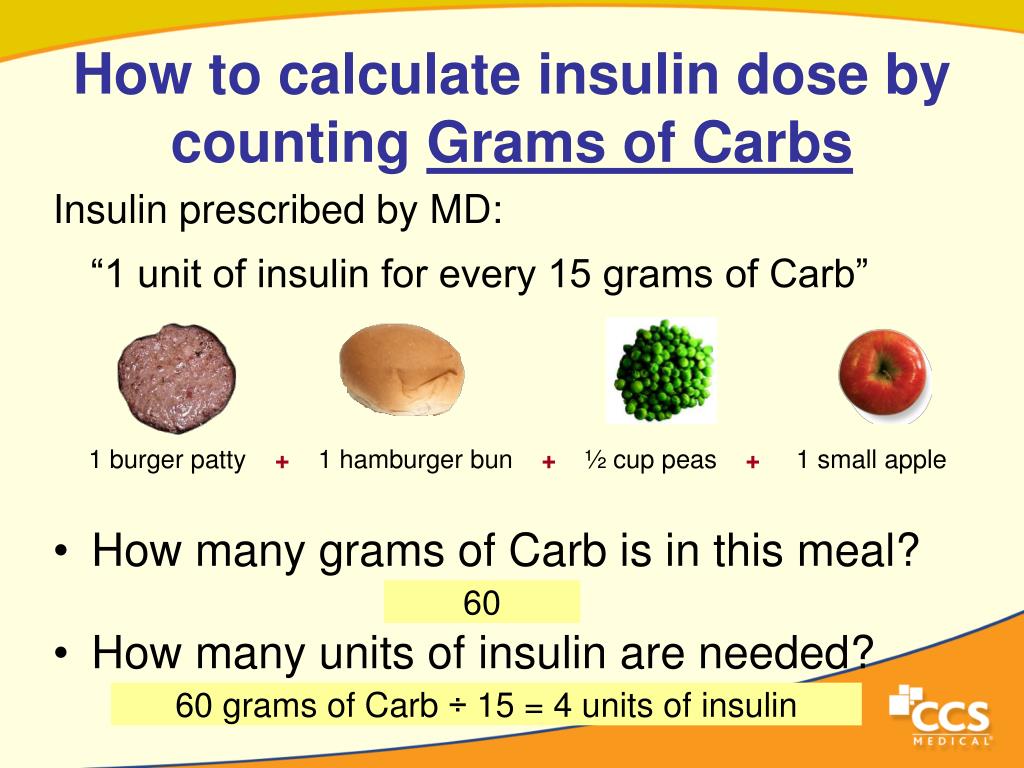do complex carbs raise blood sugar Grams carbohydrate carbs counting insulin calculate dose equal affect
Carbohydrates have always been a bit of a mystery when it comes to diabetes management. Some people think they should be avoided at all costs, while others rely on them to maintain their energy levels. So, what’s the deal with carbs anyway? In this post, we’ll break down what carbohydrates are, how they affect your blood sugar, and how you can incorporate them into your diet in a healthy way. Carbohydrates are one of the three macronutrients that give your body energy. The other two are protein and fat. Carbs can be found in foods like bread, rice, pasta, and fruits. When you eat carbs, your body breaks them down into glucose, which is then used for energy. This is where things get a bit tricky for people with diabetes. If you have diabetes, your body either can’t produce enough insulin or can’t use it effectively. Insulin is a hormone that regulates your blood sugar levels. When you eat carbs, your blood sugar levels rise, and your pancreas releases insulin to bring them back down. If you have diabetes, either your body can’t produce enough insulin to handle the carbs you’re eating, or your cells resist the insulin, which means your blood sugar levels stay elevated. So, does this mean you should avoid carbs altogether? Not necessarily. Carbs are an important source of energy, and they’re an essential component of a healthy diet. However, it’s important to make smart choices when it comes to carb consumption. One way to control your carb intake is to pay attention to the glycemic index of the foods you’re eating. The glycemic index is a scale that ranks foods based on how quickly they raise your blood sugar levels. Foods with a high glycemic index, like white bread and sugary cereals, can cause a rapid spike in blood sugar levels. Foods with a low glycemic index, like whole grains and most fruits and vegetables, tend to raise your blood sugar levels more slowly. Another way to control your carb intake is to focus on portion sizes. One serving of carbs is usually around 15 grams, which is roughly equivalent to one slice of bread or half a cup of rice or pasta. It’s also important to consider the other components of your meal when you’re planning your carb intake. Combining carbs with protein, fat, and fiber can help slow down the absorption of glucose into your bloodstream and keep your blood sugar levels more stable. At the end of the day, managing your carb intake is all about finding what works best for you. Everyone’s body is different, and what works for one person may not work for another. If you’re struggling with keeping your blood sugar levels under control, talk to your doctor or a registered dietitian. They can help you come up with a personalized plan that takes into account your specific dietary needs and preferences. So don’t be afraid of carbohydrates! With a little bit of knowledge and planning, you can incorporate them into your diet in a way that’s healthy and sustainable for you. And hey, who doesn’t love a good bowl of pasta or a slice of fresh-baked bread every once in a while?
Understanding carbohydrates
 As we discussed above, carbohydrates are one of the three macronutrients that give your body energy. They can be found in a variety of foods, including bread, rice, pasta, and fruits. When you eat carbs, your body breaks them down into glucose, which is then used for energy.
As we discussed above, carbohydrates are one of the three macronutrients that give your body energy. They can be found in a variety of foods, including bread, rice, pasta, and fruits. When you eat carbs, your body breaks them down into glucose, which is then used for energy.
Blood Sugar Management with Carb Control
 Controlling your carb intake is a key component of managing your blood sugar levels. The glycemic index can help you make smart choices when it comes to carbs, and focusing on portion sizes and balanced meals can help you keep your blood sugar levels stable. Talk to your doctor or a registered dietitian for personalized advice on managing your carb intake and blood sugar levels.
Controlling your carb intake is a key component of managing your blood sugar levels. The glycemic index can help you make smart choices when it comes to carbs, and focusing on portion sizes and balanced meals can help you keep your blood sugar levels stable. Talk to your doctor or a registered dietitian for personalized advice on managing your carb intake and blood sugar levels.
If you are looking for Blood Sugar Management with Carb Control – A Better Way To Age you’ve visit to the right page. We have 5 Pictures about Blood Sugar Management with Carb Control – A Better Way To Age like 4 Best Carbs For Lowering Blood Sugar | Dr. Sam Robbins, Carbohydrates – Our Source of Energy – Nutrition Meets Food Science and also 4 Best Carbs For Lowering Blood Sugar | Dr. Sam Robbins. Read more:
Blood Sugar Management With Carb Control – A Better Way To Age
 blog.northamericannutra.comsugar control blood carb management better carbohydrates diabetes
blog.northamericannutra.comsugar control blood carb management better carbohydrates diabetes
1 Gram Of Carb In How Much Blood Sugar : Diabetes Log Book: Weekly
 telikancf.blogspot.comgrams carbohydrate carbs counting insulin calculate dose equal affect
telikancf.blogspot.comgrams carbohydrate carbs counting insulin calculate dose equal affect
Carbohydrates – Our Source Of Energy – Nutrition Meets Food Science
 nutritionmeetsfoodscience.comcarbohydrates marilyna
nutritionmeetsfoodscience.comcarbohydrates marilyna
Understanding Carbohydrates | Know Diabetes
 www.knowdiabetes.org.ukcarbohydrates glucose starch understanding raise becomes metabolism
www.knowdiabetes.org.ukcarbohydrates glucose starch understanding raise becomes metabolism
4 Best Carbs For Lowering Blood Sugar | Dr. Sam Robbins
 www.drsamrobbins.comblood sugar carbs lowering
www.drsamrobbins.comblood sugar carbs lowering
Carbohydrates glucose starch understanding raise becomes metabolism. Carbohydrates – our source of energy – nutrition meets food science. Sugar control blood carb management better carbohydrates diabetes